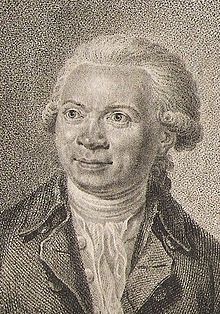Johann Abraham Peter Schulz
(1747-1800) - Piano Sonata, Op.2 (1778)
Autor: Johann Abraham Peter Schulz (1747-1800)
Obra: Piano Sonata in E-Flat Major, Op.2 (1778)
Intèrprets: Thomas Trondhjem (piano)
The son of a town musician, Schulz initially sought to become a theologian, although studies with Johann Christian Schmügel in music made him proficient on the keyboard, flute, and violin. In 1762 he traveled to Berlin to seek out Johann Kirnberger, continuing studies there interspersed with theology in Lüneburg. In 1768 he was appointed as teacher to Princess Sapieha Wolwodin of Smolensk, traveling with her entourage throughout Poland and Germany. Here he met Johann Friedrich Reichardt, who asked him to help in his musical- theoretical publications and under whose recommendation Schulz was appointed as Kapellmeister of the French Theatre in Berlin. Further connections with the royal family continued in Potsdam and Rheisberg until 1787, when he resigned to accept a post as kapelmestere in Copenhagen. In 1793 his Syngespil Pers Bryllup was performed successfully, making him the leading composer in Denmark. By 1795, however, tuberculosis forced him into retirement, and after a debilitating winter spent in Arendal in Norway when his ship to Portugal foundered, he spent his last years in his homeland. As a composer, Schulz was noted for his use of folk material, as well as a good sense of text settings in his Lieder. His surviving music includes 12 operas, five oratorios, six large cantatas, 10 other sacred works, 21 part songs, over 100 Lieder, three symphonies, and around 10 sonatas.
=============================================================
Schulz attended St. Michaelis school in Lüneburg from 1757 to 1759 and then the Johanneum there from 1759 to 1764. In 1765, he was the student in Berlin of composer Johann Kirnberger, and then taught in Berlin himself.[1] In 1768 Kirnberger recommended Schulz for the position of music teacher and accompanist to the Polish Princess Sapieha Woiwodin von Smolensk. Schulz traveled with her for 3 years throughout Europe, where he came into contact with many new musical ideas. He served as the conductor of the French Theatre in Berlin from 1776 to 1780 and from 1780 to 1787 he was the Kapellmeister of Prince Henry in Rheinsberg. Schulz then went on to serve as Court Kapellmeister in Copenhagen from 1787 to 1795 before returning to Berlin.
Schulz wrote operas, stage music, oratorios, and cantatas, as well as piano pieces and folk songs; he also wrote articles on music theory for Johann Georg Sulzer's (1720–1779) Allgemeine Theorie der schönen Künste in four volumes.
'♣ 음악 감상실 ♣ > - Sonata' 카테고리의 다른 글
| Kor Kuiler - Piano Sonata in D-minor (1899) (0) | 2019.08.18 |
|---|---|
| Gabriel Pierné- Sonata for Violin and Piano Op.36 (0) | 2019.07.09 |
| [스크랩] 로시니 : 현악 소나타 제5번 E flat 장조 (String Sonata No.5 in E flat malor) (0) | 2019.01.31 |
| Ludwig Thuille:Violin Sonata No 1, 2 (0) | 2019.01.26 |
| Joseph Wölfl - Piano Sonata in C-minor, Op.25 (1805) (0) | 2019.01.14 |
